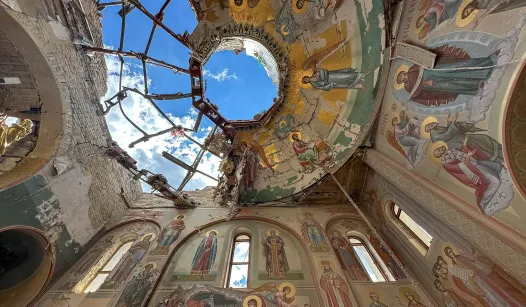The perception of Russia as a defender of Christianity is increasingly challenged by the reality of religious persecution occurring under its regime. In both Russia and the regions of Ukraine occupied by Russian forces, Christians face significant oppression.
In recent years, the Russian government has implemented policies that restrict religious freedoms, targeting not only minority Christian denominations but also other faiths. This crackdown has intensified in areas under Russian control, where local populations are subjected to surveillance, harassment, and violence for their beliefs.
In Russia, the state has increasingly aligned itself with the Russian Orthodox Church, promoting a narrative that positions it as the guardian of traditional Christian values. However, this alignment has often come at the expense of other Christian groups, particularly those that do not conform to the state-sanctioned version of Orthodoxy. Protestant communities, for example, have faced raids on their places of worship, fines, and imprisonment for practicing their faith outside of state oversight.
The situation is even more dire in the territories of Ukraine that are currently occupied by Russian forces. Reports from these regions indicate that Christians, especially those who do not adhere to the Russian Orthodox Church, are facing severe persecution. Places of worship have been destroyed, and believers have been subjected to intimidation and violence. Many have been forced to flee their homes, leaving behind their communities and congregations.
This pattern of persecution raises important questions about the Russian government’s true commitment to religious freedom and the protection of Christians. While the Kremlin may promote itself as a bastion of Christianity, the reality is that its actions contradict this narrative. The state’s efforts to consolidate power and suppress dissent have led to a climate of fear for many believers.
As the international community observes these developments, it becomes crucial to recognize the plight of persecuted Christians in Russia and occupied Ukraine. Understanding the true nature of the Russian regime’s actions is vital for advocating for religious freedom and supporting those who suffer under its oppressive policies.
In conclusion, the notion of Russia as a defender of Christianity is undermined by the tangible evidence of religious persecution. The experiences of Christians in both Russia and occupied Ukraine serve as a stark reminder of the challenges faced by those who seek to practice their faith freely. Addressing these issues is essential for promoting human rights and ensuring that all individuals can worship without fear of persecution.
